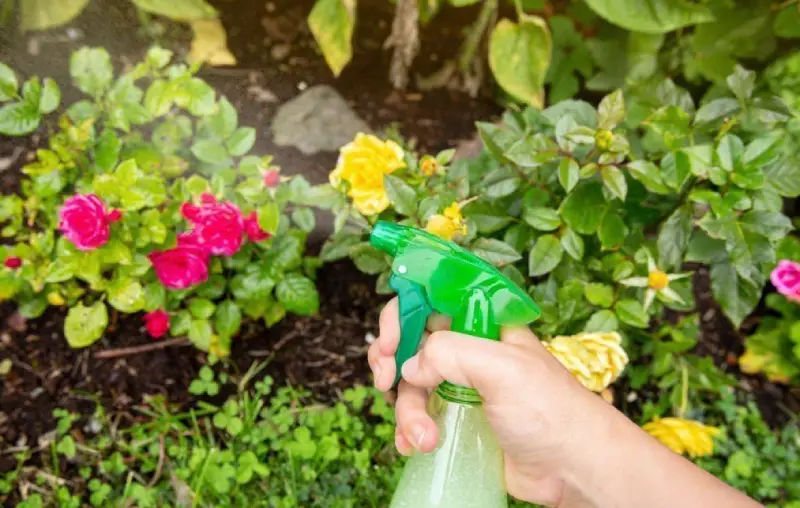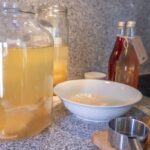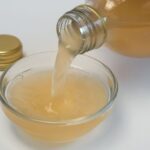There are several reasons why you might want to make your own insecticide for your vegetable garden. Commercial insecticides can be expensive, and they may contain harmful chemicals that you don’t want to use on your plants. Applying some best homemade insecticide for vegetable garden is the right choice to protect your plants from pests without damaging it.
To keep a vegetable garden healthy, you need to be careful about bug control. Insects can do a lot of damage to crops, which can lower output and hurt the health of the plants. Even though commercial pesticides are easy to find, they often contain dangerous chemicals that can hurt the environment, good bugs, and even people. Insecticides you make at home are safer and better for the environment.
There are a few different recipes you can use to make your own insecticide. Some of the best homemade insecticide for vegetable garden are dish soap, water, and vinegar. Simply mix these ingredients together and spray them on your plants. This mixture will kill most common garden pests, including aphids, caterpillars, and whiteflies.
However, there are many other ways to create your homemade insecticide so stay tuned until the end to find everything you need!
How do I Make a Natural Insecticide for Vegetable Plants?
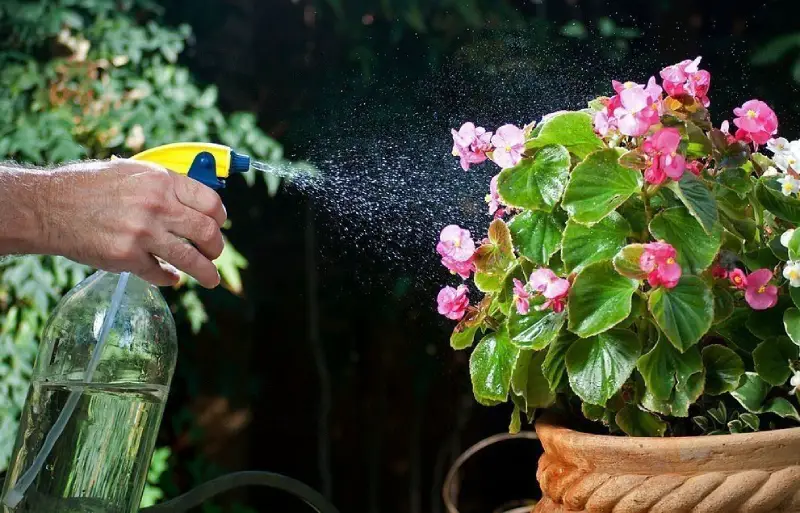
Natural insecticides include household items and products that can be found in almost every house, so you don’t need to buy any of these items that we will show you below.
There are a few different ways to make a natural insecticide for plants.
A simple way to make natural insecticides is to mix water and vinegar and spray it on your plants. This is a great way to keep insects away from your vegetable plants.
Another option is to mix water, soap, and garlic in a 1:1:1 ratio and spray it on your plants. You can also make a stronger mixture by adding one part each of water, vinegar, and garlic to a quart (litre) bottle and shaking it well.
You can also add essential oils to any of these recipes for extra pest-fighting power. Just be sure to test the spray on a few leaves before applying it to your whole plant to check that the insecticide is fine and it doesn’t provoke any problems with the leaves.
There are many other ways to make your DIY homemade insecticide for vegetable plants so stay tuned until the end of this article.
Benefits of using Homemade Insecticides
Homemade Insecticides are chemical substances used to kill insects. They are used in both agricultural and domestic settings to control insect pests. Insecticides can be categorised into two groups: synthetic insecticides, which are man-made, and natural insecticides, which occur naturally in plants and animals.
- They are cheaper to produce than buying store-bought insecticides.
- You can customize the recipe to be more effective against specific pests.
- You can control the ingredients used, so you know exactly what you’re spraying on your plants.
- Some homemade insecticides are often more effective than store-bought products.
- They are a more environmentally-friendly option.
If you are looking for an effective and environmentally-friendly way to control insects, then homemade insecticides may be the answer.
The Best Homemade Insecticide for Vegetable Gardens
Before starting with the homemade insecticides, it is important to mention that all of these insecticides below should be sprayed on plants to get the best possible results. So, it is preferable to use a spray bottle and put your liquid inside.
Now, let’s see the best homemade insecticide for vegetable garden!
Dish Soap
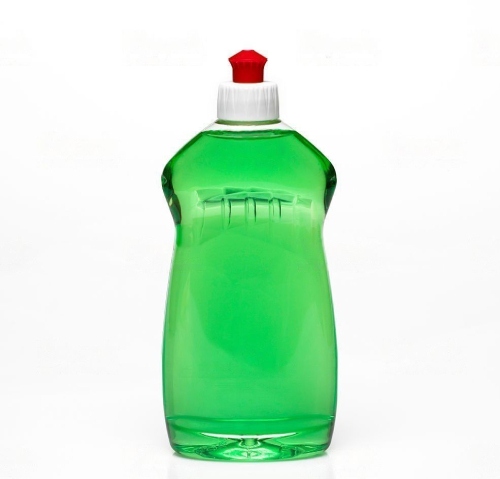
A very simple homemade insecticide that is very similar to oil spray is soap spray, which is also effective against mites, aphids, whiteflies, beetles, and other hungry little insects.
To create this kind of insecticide, you need to mix 1 1/2 teaspoons of mild liquid soap) with 1 quart of water and spray the mixture directly onto the surface of the infected plant.
Tip: Soap Spray can be applied as needed (but it is recommended to apply in the evening or early morning rather than in the hot midday sun).
Garlic
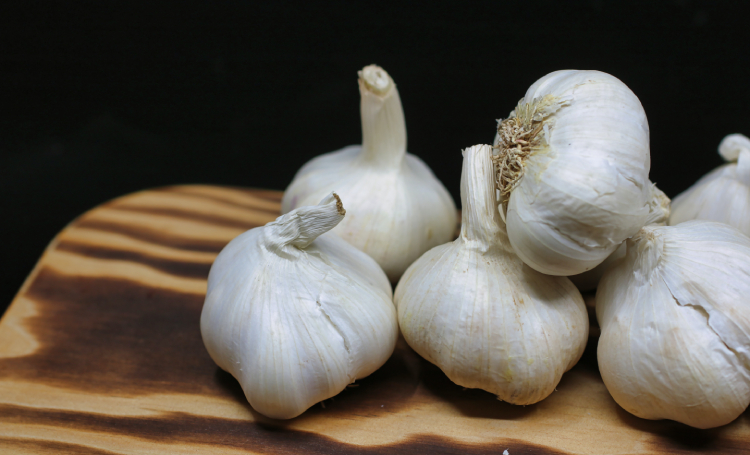
Garlic has natural antibacterial, antiviral, and antifungal properties and is also a powerful homemade insecticide.
To make a homemade garlic spray you need to soak the garlic in water for a whole night. Add a little dishwashing liquid to the mixture and sift through a fine mesh sieve.
Then, dilute this liquid with a gallon of water, then pour it into a spray bottle.
Tip: To control most pests, spray your plants with this solution once or twice a week.
Vegetable Oil
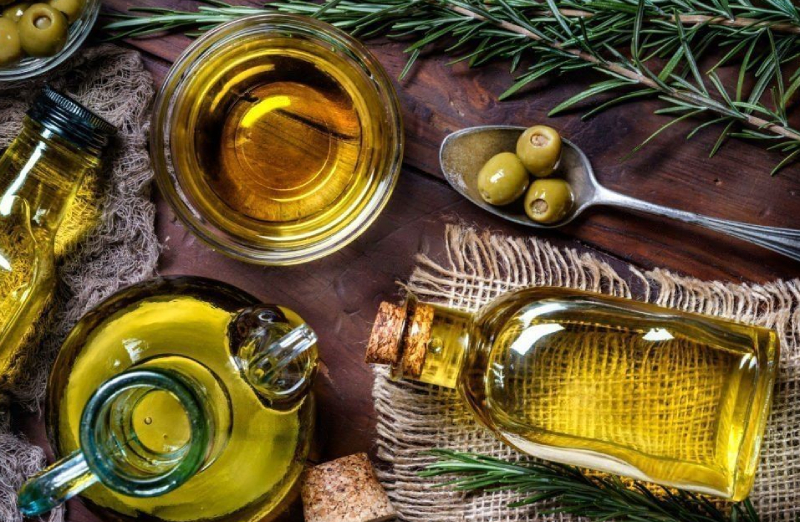
This is another simple way to create a homemade insecticide for your vegetable garden. Vegetable oil is an effective insecticide spray that can be made with two very simple ingredients which are soap and oil.
Oil spray works by enveloping and suffocating soft-bodied insects like aphids and mites.
Mix 1 cup vegetable oil with 1/4 cup liquid soap and shake well.
You can store it until you need it. When treating plants, mix 1 tablespoon of this concentrate with 4 cups of water.
Tip: It should be reapplied once a week.
Diatomaceous Earth
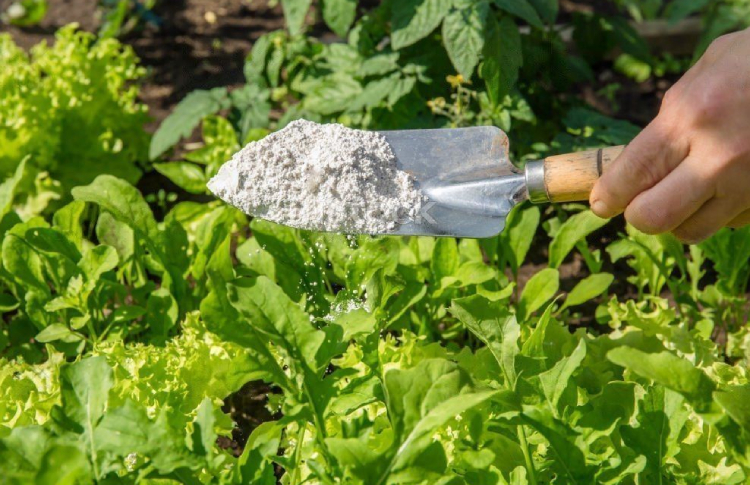
Diatomaceous earth is a natural insecticide that is made from the fossilized remains of algae. It is a safe and effective way to kill bugs, and it can be used indoors and outdoors. Diatomaceous earth works by absorbing the oils and fats from the bugs’ exoskeletons, which causes them to dehydrate and die.
If you’re looking for a natural way to get rid of bugs, diatomaceous earth is a great option. It’s safe to use around children and pets, and it’s relatively cheap.
People collect diatomaceous earth from the sediment of rivers, lakes and oceans. However, most people usually buy it online through Amazon or any other retail store.
Tip: Sprinkle the Diatomaceous earth on the ground of your garden and make sure to apply it in the morning and reapply it after each rain.
Hot Pepper
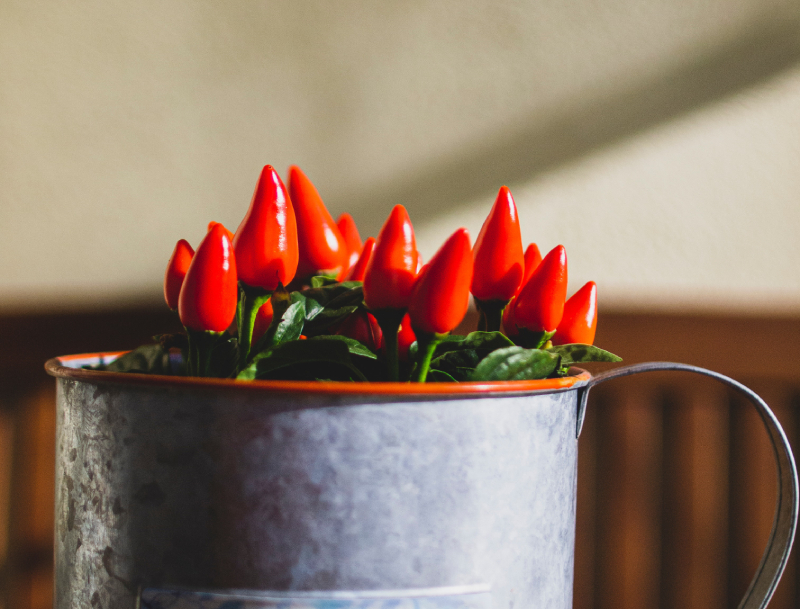
Looking for a safe and effective way to keep pests off your plants? A hot pepper spray is a great option. Made from capsaicin, the active ingredient in chilli peppers, hot pepper spray is a natural insecticide that can be used on a variety of plants.
Hot pepper spray works by disrupting the pests’ nervous system, causing them to feel irritation and pain. This will usually cause the pests to flee the area. Since capsaicin is a natural compound, it is safe for use around humans and pets.
Tip: If you’re interested in using hot pepper spray to protect your plants, be sure to read the labels carefully. Some hot pepper sprays may be more potent than others, so it’s important to choose one that is appropriate for the plants you’re treating.
Vinegar
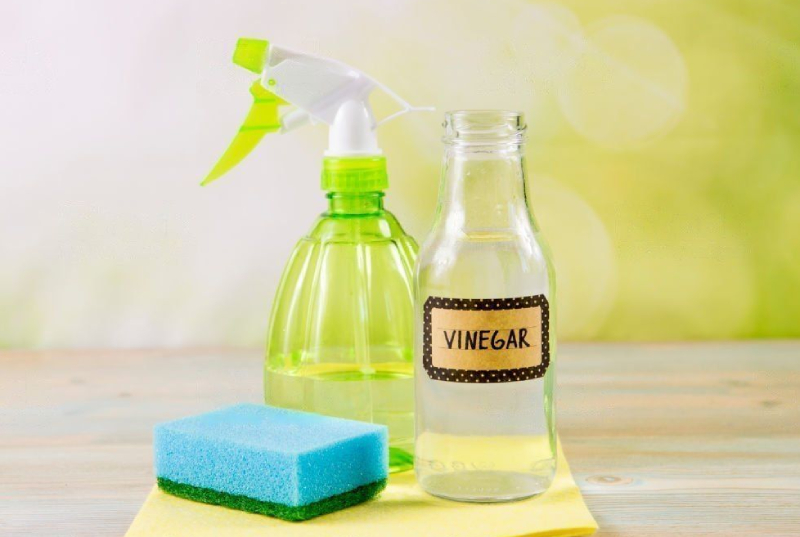
Vinegar has been used as an insecticide for centuries. It is a safe and effective way to control pests in the vegetable garden. Vinegar is made from fermented sugars and is high in acetic acid. This acetic acid is what makes vinegar effective at killing insects.
To use vinegar as an insecticide, simply mix one part vinegar with one part water in a spray bottle. Then, spray the mixture onto the leaves of your plants, being sure to coat the undersides of the leaves where insects are most likely to hide.
Tip: Vinegar is safe to use on most vegetables, but it is always a good idea to test it on a small area of the plant first to make sure there is nothing something wrong.
Beer
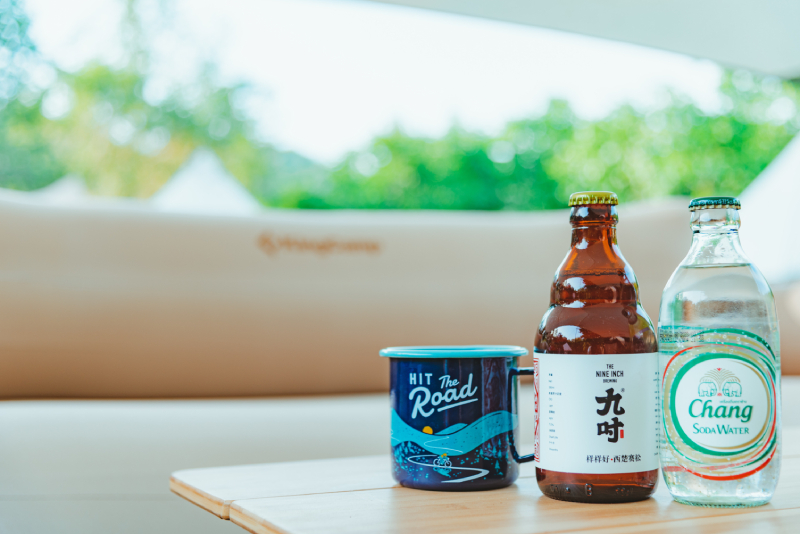
Whether you’re looking to protect your vegetable garden from pests or simply want to get rid of beer faster, consider using beer as an insecticide.
Beer is a natural product and of course is non-toxic to both humans and animals, making it a safe choice for your garden. Furthermore, it is effective against a variety of common garden pests, including aphids, beetles, and caterpillars.
Tip: To use beer as an insecticide, simply mix one part beer with one part water and spray it on your plants. Be sure to target the underside of the leaves, where most pests reside. You can also add a bit of dish soap to the mixture to help the spray stick to the leaves better.
Reapply every few days as needed.
Tomato leaves
Tomato leaves can be used as an insecticide for vegetable plants. Theasson principal alkaloid, tomatine, which is present in tomato leaves, is toxic to many insects. When this substance is applied to the leaves of vegetable plants, it will kill any insect that comes into contact with it.
Tomato leaves can be used as an effective insecticide for vegetable plants. The leaves contain a substance called lycopene, which is toxic to many common garden pests. When the leaves are crushed and applied to the soil around plants, the lycopene will kill any pests that come into contact with it.
This method of pest control is safe for both humans and animals, and it is also environmentally friendly. If you have a vegetable garden, try using tomato leaves as an insecticide and see for yourself how well they work.
Companion Planting
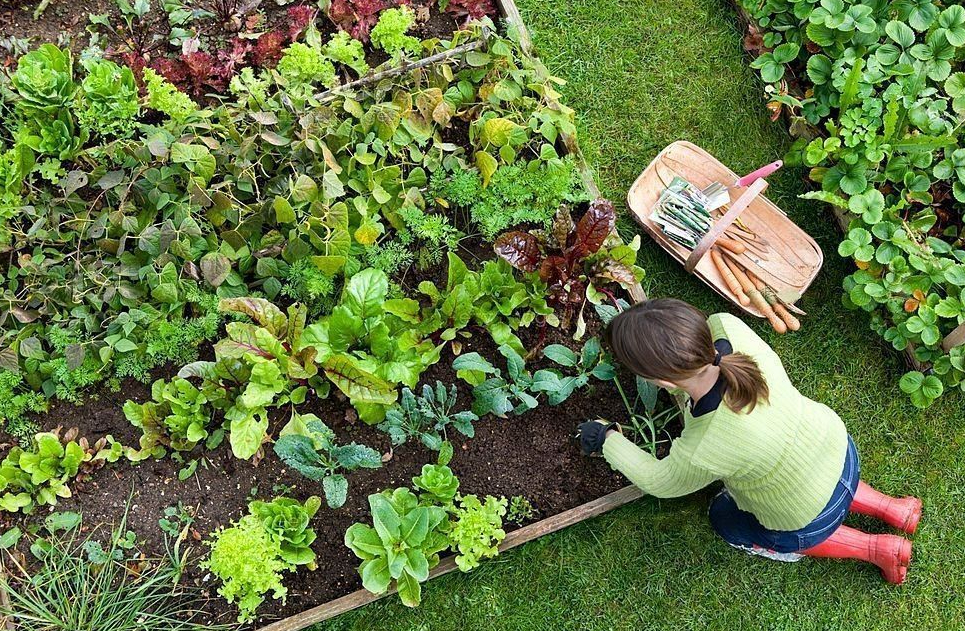
Companion planting is not an insecticide or a liquid for insects but it offers many benefits.
Companion planting is the practice of growing different plants together close. Companion planting can offer many benefits to your vegetable plants, including increased pest control, improved pollination, and enhanced growth.
There are a few things to keep in mind when companion planting vegetables. First, make sure to choose plants that have compatible growing requirements with your vegetable garden.
You’ll also want to consider the size of your plants when planning your layout. Finally, keep an eye out for any potential problems, such as plants that may become invasive.
By following these guidelines, you can create a thriving and productive vegetable garden using companion planting.
Plant Chrysanthemums Flowers
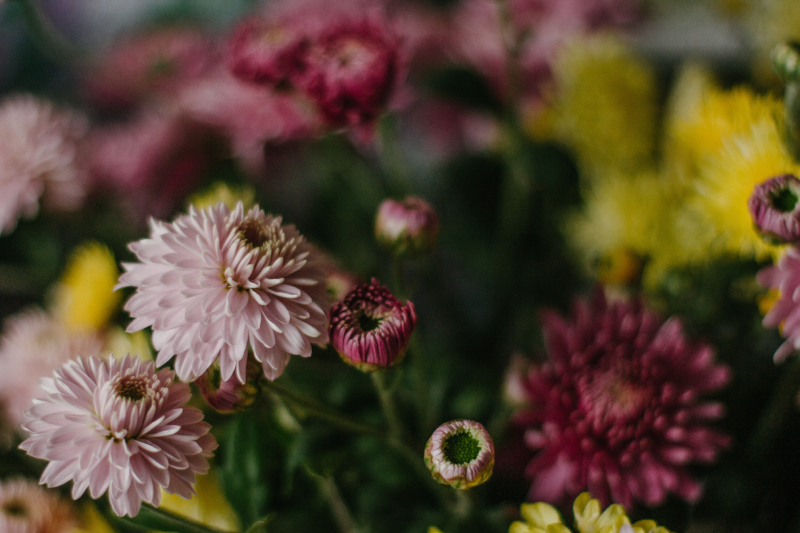
The chrysanthemum flower is a beautiful and versatile plant that can be used for a variety of purposes. They can be used as a natural pest repellent and can also help to protect other plants from pests.
Chrysanthemums contain a chemical called pyrethrin, which is a natural insecticide for many insects. When chrysanthemums are planted around the perimeter of a garden, they can help to keep pests out.
So, if you have some trouble with insects, make sure to plant some chrysanthemums next to your vegetable garden to keep them away and protect your vegetables
Natural way to prevent pests in your vegetable garden
- Have a healthy vegetable. Insects likes to target sick and dying plants. That is their natural habitat. Maintain the health of your grass and plants by removing any diseased or dead parts as soon as possible.
- Grow your vegetable at the right time and Harvest vegetable early. Although late-season vegetable gardens are renowned for their abundance, there are occasionally other plants that are also in high demand. When vegetables are at their most delightful, many insect pests are most active just before harvest. Pest populations continue to grow throughout the summer and become more problematic for gardens in the fall.
- Manual removing of plants.The most non-toxic and safest treatment method for indoor garden pests is to manually remove them from the plants. When the infestation is small or your plants have larger or fewer leaves, this method works best.
- Add chicken in your garden. They help clean up pests and eat fruit flies garden pests.
- Diversity. Grow different vegetables is a strength. The ability of grasslands to naturally ward off insect herbivory is improved by greater plant diversity. Plant communities with a variety of species help to maintain natural predators while also giving herbivores less valuable prey.
- Use nets or bags. Allow the covers to rest on the plants or hang them from hoops. Secure them around the perimeter to prevent pests from simply walking in at soil level. Covers are an excellent solution for caterpillar-prone brassicas and for keeping carrot fly, aphids, and squash bugs out.
Conclusion
Summing up, aside of having an option to choose plants that repel insects and rodents, we also have mentioned some of the main benefits of making homemade insecticides for vegetable garden to keep your plants safe. Protecting your vegetable garden from harmful insects is essential for a successful harvest. By opting for homemade insecticides, you can effectively control pests while prioritizing the health of your plants and the environment. Whether you choose the soap spray or garlic and pepper spray, these natural remedies offer a safe and sustainable approach to pest management.

As a dedicated mother and passionate software developer, she weaves her diverse experiences into captivating stories that inspire and engage readers. Emma's love for sustainable living and environmental consciousness permeates both her personal and professional life. When she's not immersed in the world of coding and software development, Emma can be found nurturing her family and tending to her thriving organic garden. Her commitment to sustainable practices extends to every aspect of her life, from repurposing household items to embracing eco-friendly technologies.

